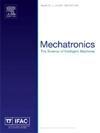网络直流伺服系统的协同自适应最优控制算法
IF 3.1
3区 计算机科学
Q2 AUTOMATION & CONTROL SYSTEMS
引用次数: 0
摘要
本文提出了一种新颖的协作自适应最优控制(CAOC)算法,用于网络化直流伺服(DCS)系统,在协作系统中实现跟踪同步,其中领导者产生期望的速度,DCS跟随者根据通信图拓扑实时跟踪其输出并与自己的邻居同步。由于共识跟踪误差动态受相邻智能体控制输入的影响,每个智能体的代价函数不仅包括其共识跟踪误差和能量,还包括相邻智能体的能量。首先,基于李雅普诺夫理论和回溯技术,设计了前馈控制器,生成增强控制输入,将严格反馈形式的局部一致跟踪动力学转化为仿射形式。其次,在自适应动态规划(ADP)的基础上,设计了性能指标函数最小化的CAOC算法。最后,在STM32F103单片机上进行了仿真和实验,验证了算法的有效性。本文章由计算机程序翻译,如有差异,请以英文原文为准。
CAOC: Cooperative adaptive optimal control algorithm for networked direct current servo systems
This letter proposes a novel cooperative adaptive optimal control (CAOC) algorithm for networked direct current servo (DCS) systems to achieve tracking synchronization in a cooperative system, where the leader generates the desired speed and the DCS followers track its output and synchronize with their own neighbors according to the communication graph topology in real time. As consensus tracking error dynamics is affected by the control inputs of the neighboring agents, the cost function for each agent includes not only its consensus tracking error and energy, but also the energies of the neighbors. Firstly, based on the Lyapunov theory and backstepping techniques, we design feedforward controllers that generate augmented control inputs to transform local consensus tracking dynamics in strict feedback form into affine form. Secondly, based on adaptive dynamic programming (ADP), we design the CAOC algorithm to minimize the performance index function. Finally, we conduct the simulation and experiment on the STM32F103 microcontrollers to validate the effectiveness of the proposed algorithm.
求助全文
通过发布文献求助,成功后即可免费获取论文全文。
去求助
来源期刊

Mechatronics
工程技术-工程:电子与电气
CiteScore
5.90
自引率
9.10%
发文量
0
审稿时长
109 days
期刊介绍:
Mechatronics is the synergistic combination of precision mechanical engineering, electronic control and systems thinking in the design of products and manufacturing processes. It relates to the design of systems, devices and products aimed at achieving an optimal balance between basic mechanical structure and its overall control. The purpose of this journal is to provide rapid publication of topical papers featuring practical developments in mechatronics. It will cover a wide range of application areas including consumer product design, instrumentation, manufacturing methods, computer integration and process and device control, and will attract a readership from across the industrial and academic research spectrum. Particular importance will be attached to aspects of innovation in mechatronics design philosophy which illustrate the benefits obtainable by an a priori integration of functionality with embedded microprocessor control. A major item will be the design of machines, devices and systems possessing a degree of computer based intelligence. The journal seeks to publish research progress in this field with an emphasis on the applied rather than the theoretical. It will also serve the dual role of bringing greater recognition to this important area of engineering.
 求助内容:
求助内容: 应助结果提醒方式:
应助结果提醒方式:


